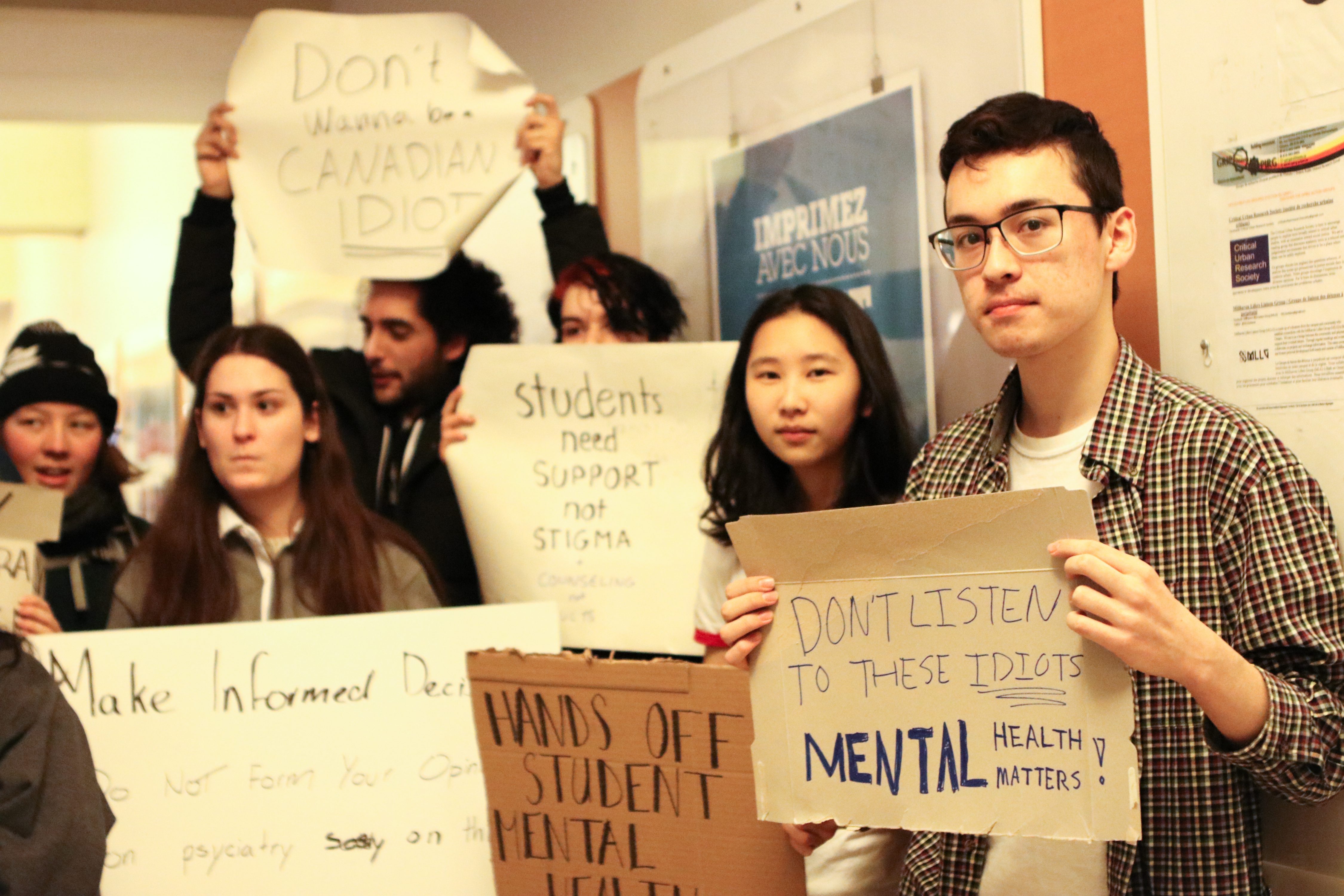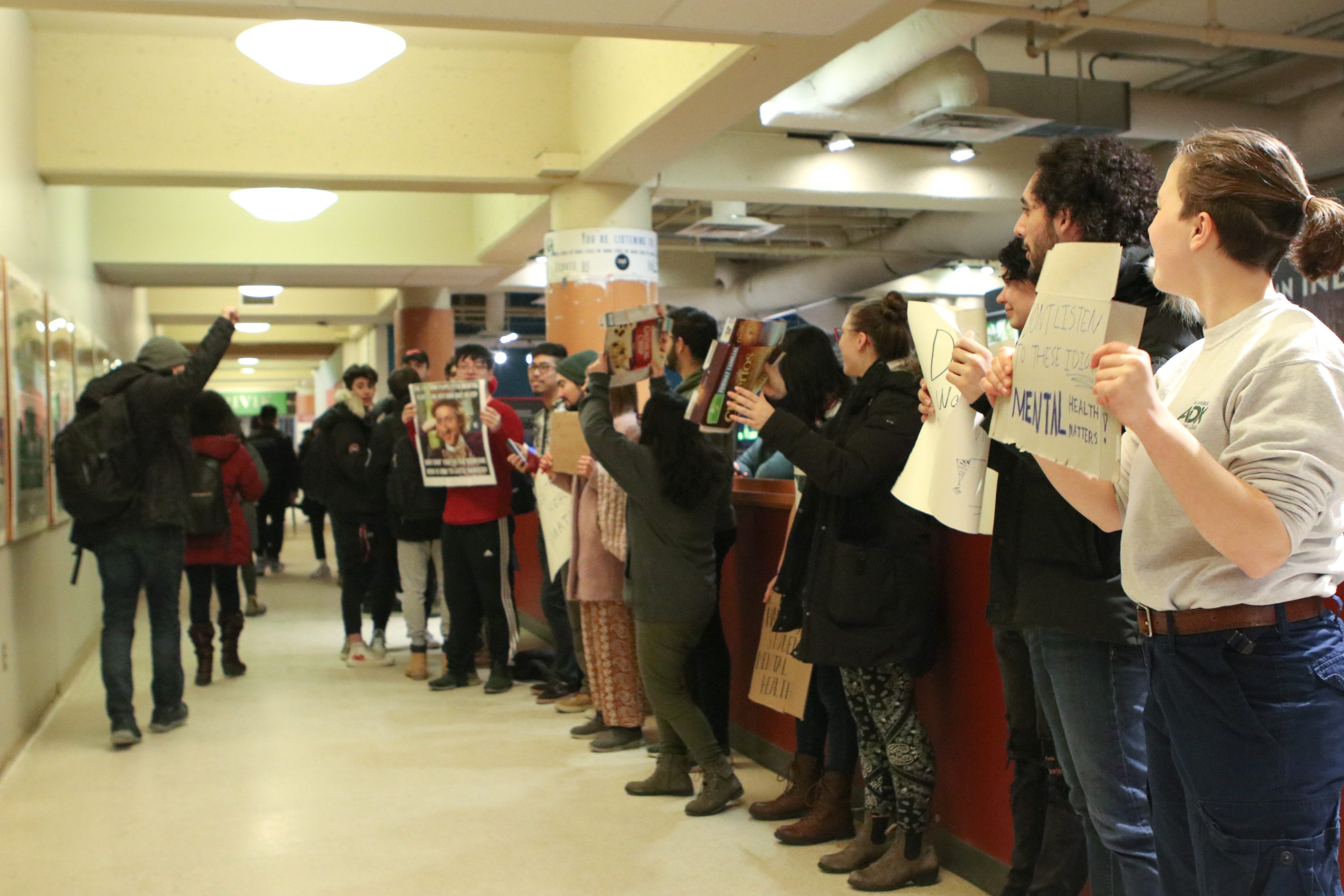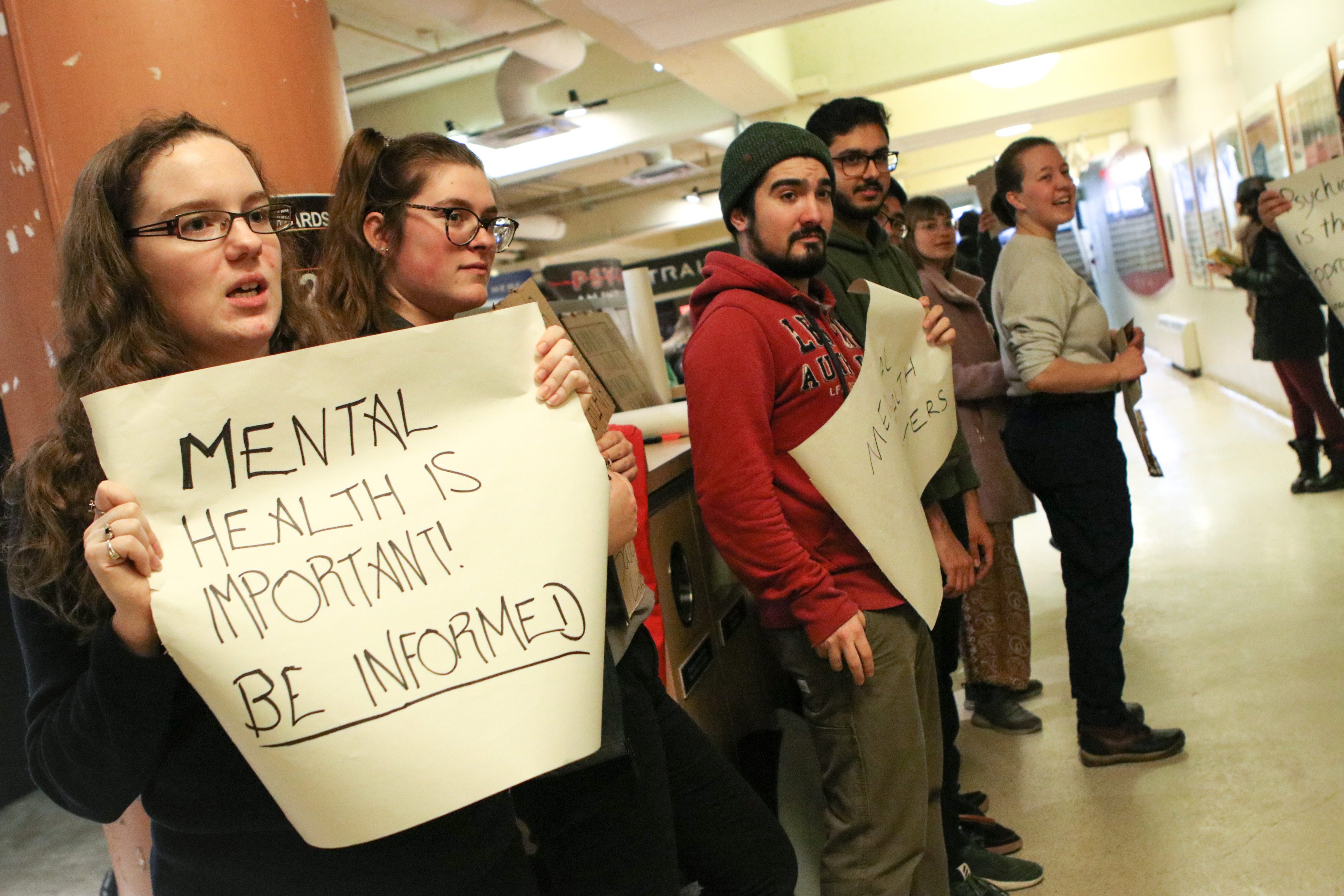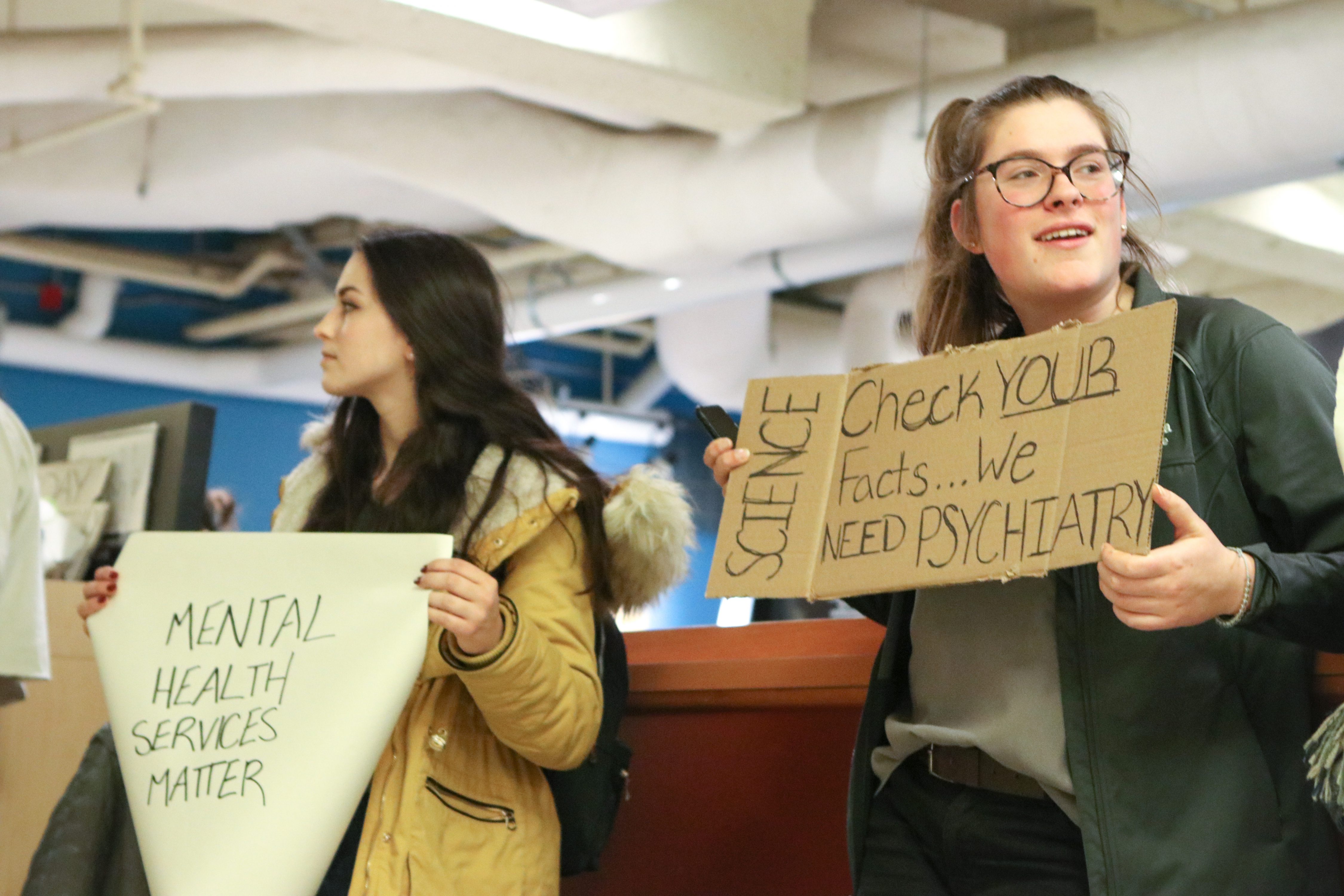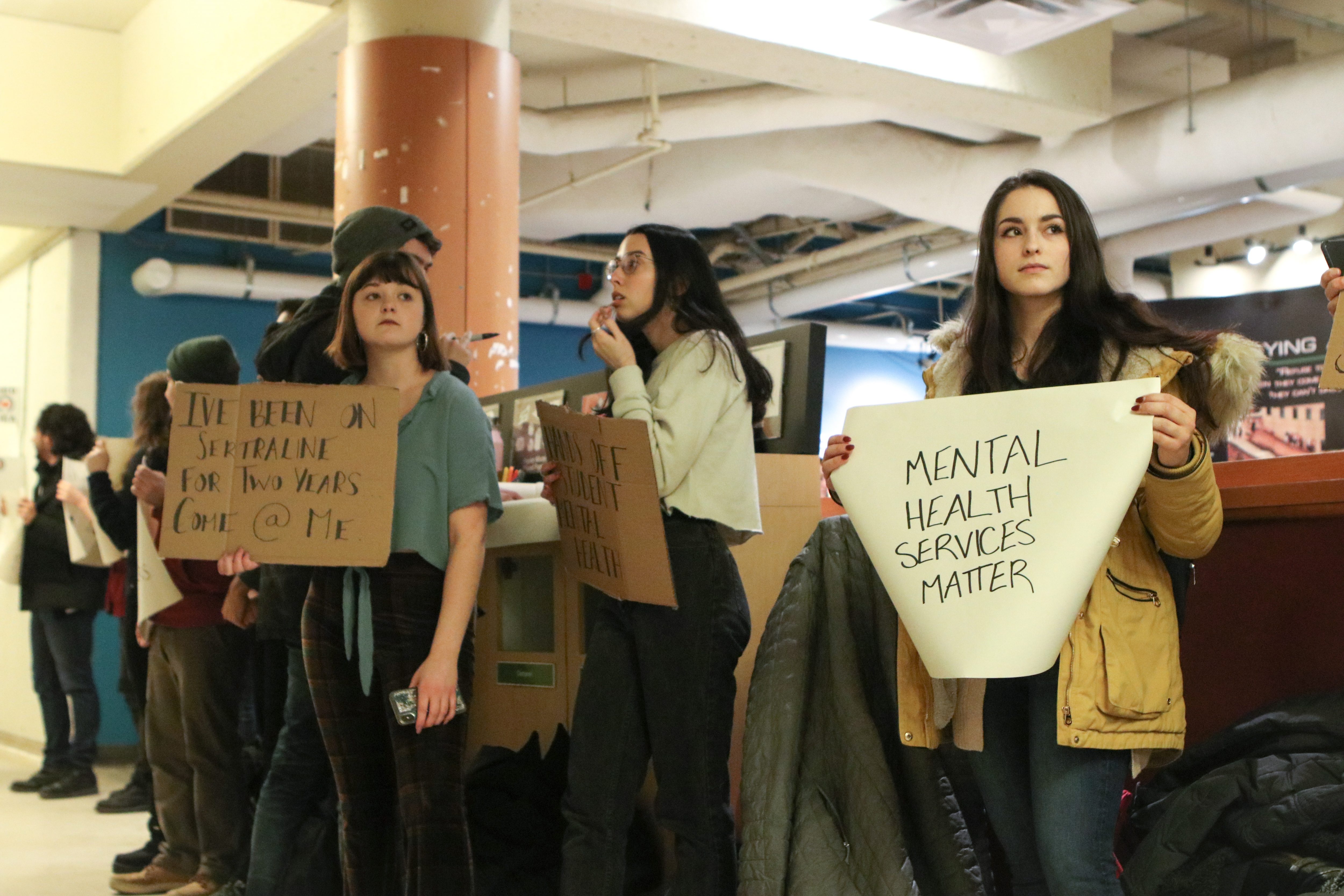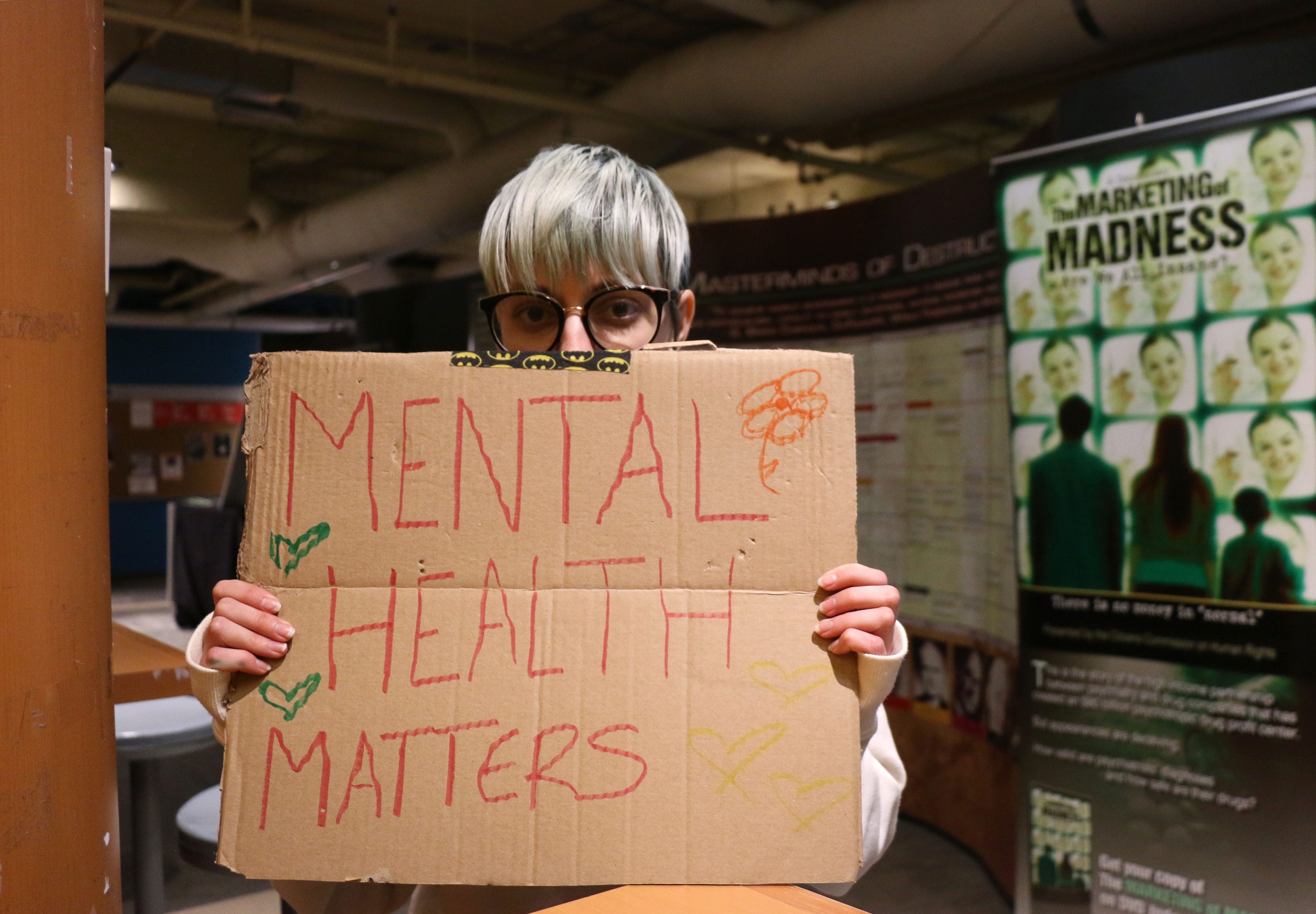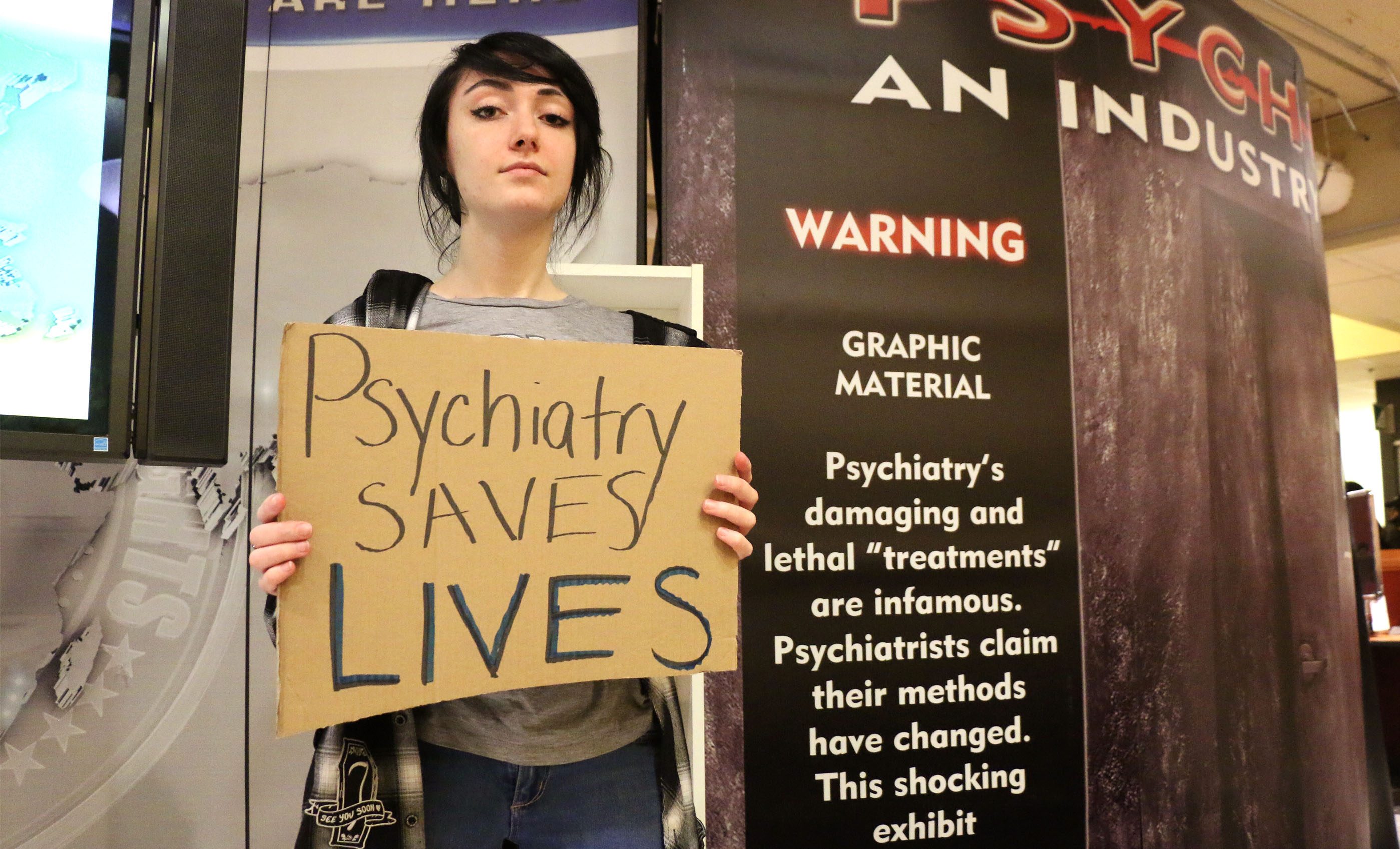Frémont cites concerns of drawing national attention to the exhibit’s ‘propaganda’ in decision
The president of the University of Ottawa said a Scientology linked anti-psychiatry exhibit on campus that has been widely condemned and protested by students is “outrageous” and “hurtful to many members of the community,” but ruled the school will not be removing the display.
While Jacques Frémont acknowledged mounting pressures from the community for the removal of the 14-panel display in the University Centre titled “Psychiatry: An Industry of Death,” he cited concerns around drawing national attention to the exhibit’s “propaganda” in his decision to let it stand until its scheduled conclusion on Friday.
“We disagree really strongly with the exhibit but, to be frank, if we had terminated the contract it would be front-page news nationally, it would be in all the newspapers, all the media, and then it means that their propaganda would have had a much larger audience,” Frémont said in an interview on Thursday. “That weighed a lot on our decision to let the week go.”
The exhibit was installed earlier this week by the Citizens Commissions on Human Rights (CCHR), an international non-profit organization established in 1969 by the Church of Scientology.
Frémont said the exhibit was under a different name when the university approved it and added that the backlash from students has been a learning experience for the school.
“It will certainly impact the (university) policy about welcoming organizations from outside who want to get on our campus to exhibit,” said Frémont. “It is important that our campus remains a place where there’s full freedom of expression, there’s the full expression of even ideas we don’t share … but it’s also very important that members of the community are not aggressed by that expression.”
The exhibit — which features panels such as “Inventing Disorders to Sell Drugs” and “Hooking the World on Drugs” — was set up just days after the university finished celebrating its annual Wellness Week. The exhibit also comes less than two months after thousands of petition signers demanded better mental health services from the university in the wake of four student deaths in a year.
“We understand how offensive it is, I mean, a week after the wellness week while our medical students are studying psychiatry, while we have so many challenges in terms of mental health,” said Frémont. “The message is extremely disturbing.”
Students have been protesting the exhibit since Monday. Equipped with signs that contained messages related to mental health awareness and criticism of the exhibit, protestors also recited chants such as “students for mental health,” and “Scientology has got to go.”
Camelia Skaf, a second-year French and applied ethics student, said that it’s “appalling” how inaccurate the information being presented at the exhibit is.
“If you take the time to actually go and look at (the exhibit), you’ll see there that there’s a lot of information that is being disproved today by modern science, a lot of information that is being disproved by even professors at the university,” said Skaf.
Emma Copeland, a third-year conflict studies and human rights student, said that the display further isolates students who use medication to treat their mental illnesses.
“Students might walk past something like this and say… ‘Clearly, I’m doing something wrong, and I should go off my meds, or my mental illness is a danger to society,’ ” said Copeland.
“And then that person goes off their meds and they stop seeing their therapist, and they withdraw from society because their mental illness gets worse,” she said. “Then it ends in someone getting very, very, very hurt or very sick, or unfortunately (dying by suicide), as we’ve seen is a trend on this campus.”
An online petition calling for the school to ban the Church of Scientology from campus has also gathered over 1,500 signatures as of Thursday night.
Robert Dobson-Smith, the president of CCHR Canada, said that the exhibit is not intended to come off as insensitive.
“It’s directed toward people that want to control and have a prescribing practice,” said Dobson- Smith. “They control what drugs you take and they prescribe drugs for you, and they also control what information you got. And as far as we’re concerned, in most cases, the information you get is incomplete.”
In an online statement, the University of Ottawa Students’ Union said it stands with students who are condemning the CCHR and its exhibit.
“The exhibit … puts forward unfounded ideas that students should not seek mental health support,” reads the statement. “The UOSU stands with the science in acknowledging psychology and psychiatry as an important component of mental health support.”
CUPE 2626, the union representing student workers at the U of O, also expressed its support for students mobilizing against the display.
—With files from Aaron Hemens

